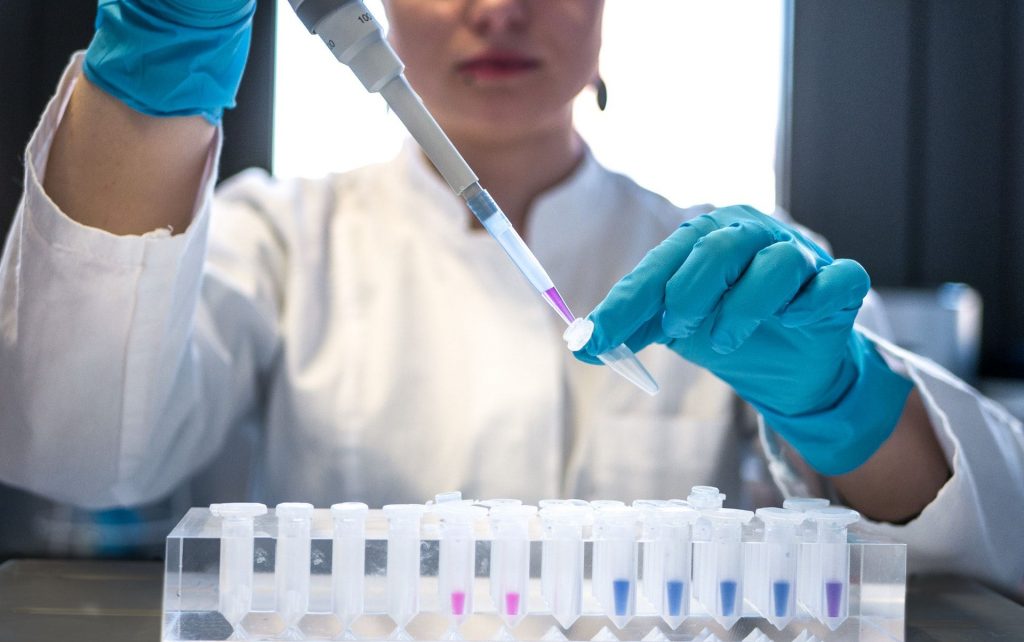The importance of collaboration to advance digital health
By luis.lacerda, on 27 March 2024
Earlier this month the Government announced a £3billion+ package to update fragmented and outdated IT systems across the NHS and transform the use of data to ease administrative burdens. That same week, the Policy Impact Unit (PIU) hosted a roundtable on digital health in the UK, bringing together colleagues from across UCL (see co-authors) as well as visiting researchers from the FioCruz Oswaldo Cruz Foundation in Brazil.
FioCruz is a federal public research foundation working with academic autonomy under the Ministry of Health of Brazil which was responsible for coordinating the COVID-19 vaccination campaign. The Brazilian delegation were keen to hear about UK experiences on health digitisation, challenges and opportunities, as well as developing a deeper understanding of the context and evaluation of several commitments agreed under the Brazil-UK High-Level Strategic Dialogues from 2020, some of which focussed on health cooperation and were funded by the Official Development Assistance (ODA) [1].
The main challenges discussed in the meeting, in relation to the digitalisation of the NHS, were systems’ interoperability, training and workforce capacity. Although there has been a push towards the adoption of federated data platforms (FDP), which will sit across NHS trusts and integrated care systems allowing them to connect data they already hold in a secure and safe environment, these are still disjointed and connecting them relies on platform providers talking to each other, which often does not happen.
Common challenges: interoperability, training and workforce capacity
The adoption of new digital health approaches is also reliant on having trained healthcare professionals to understand the power of data and new technologies. Particularly in primary care and GPs it is essential to have digitally literate colleagues that can engage communities, be clear and transparent about how health data is used and input it correctly to build FDPs that can be further used for research and to invest on the health of the nation[2]. Programmes like the NHS “Developing healthcare workers’ confidence in artificial intelligence” and inclusive digital healthcare are important, because there is a risk that ambitions to digitise the NHS, which are well intended, could exacerbate existing health inequalities and exclude some groups.
Incidentally, there is still a lack of progress to de-identify General Practice data and address low levels of confidence in new technologies among diverse communities – such as highlighted in the Health and Social Care Committee’s recent evaluation. Trust can be undermined as is the societal buy-in needed to deliver on ambitions for a more digital NHS.
Opportunities and way forward: innovation in regulatory mechanisms
On the flipside, there is an opportunity to bring people in early on to discussions on how AI tools are being used in medical devices, and how to properly manage the balance of risk and benefits such technologies may bring. The recent launch of the UK Regulatory Science and Innovation Networks was discussed, as well as the launch of a MHRA roadmap to create a framework for medical devices in the UK. Patients, researchers and industry representatives being included in this process, and being clear about how data can be used for the purposes of research, poses a great opportunity to bring real impact to clinical practice in terms of diagnosis, treatment, and monitoring of diseases.
Including other global partners in this conversation is essential given the importance of sharing learnings in different contexts, but also given the increasingly important role of international recognition in the medical domain as a factor to evidence impact. Specifically for global issues such as AI and post-market surveillance, where it is very difficult for regulators to know how new tools will perform before they are deployed, there is now a chance to have new standards emerge to shape digital health strategies across countries. We hope that visits like this inspire colleagues to work collaboratively and look forward to hearing from FioCruz how their visit is supporting Brazilian policy decisions on the development of digital health strategies.
Authors Note
Written by Dr. Luís Lacerda, Policy Impact Unit and co-authored by Professor Amitava Banerjee, UCL Institute of Health Informatics, Professor Derek Hill, UCL Dept of Medical Physics & Biomedical Engineering and Professor Patty Kostkova, UCL Institute for Risk & Disaster Reduction.
References
[1] For a list of projects funded under the scheme, please visit https://devtracker.fcdo.gov.uk/
[2] A particular good example was the COVID-19 registry where data such as vaccination rates, long-covid reports were put together in the same place and from different countries.
 Close
Close





